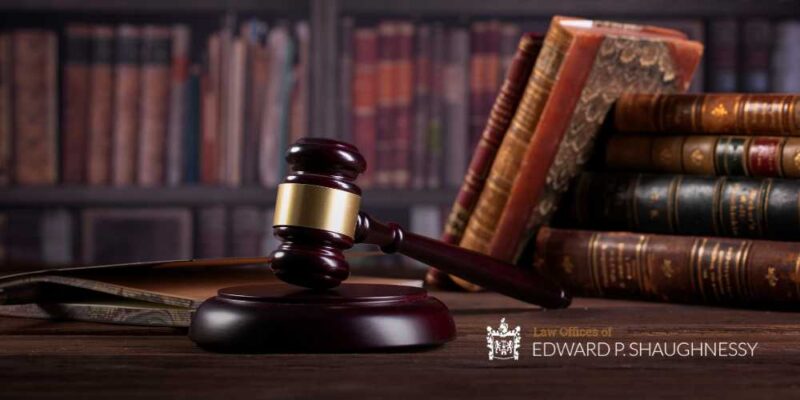In Pennsylvania, negligent referral and malpractice liability occur when professionals refer patients or clients and assure the professional to whom they referred the client would perform satisfactorily, but the referred professional fails to exercise the knowledge that reasonable professional members would exercise, based on the average skill normally exercised.
What is Negligent Referral in Pennsylvania?
This is a general intent tort that involves a breach of duty owed to another party, similar to how drivers owe a duty to other drivers, passengers, as well as pedestrians.
This is a duty that is owed in fields like wills, trusts, estates, accounting, medicine and others. This duty owed is often referred to as a duty of care. Typically, professional malpractice cases involve negligence theory.
Those who need assistance with negligent referral to show professional negligence occurred, including establishing a duty of care, a breached duty, causation, and damages, should consult an attorney. Easton, PA, civil litigation attorney Edward P. Shaughnessy has extensive experience holding those who have a fiduciary duty to another party liable for a negligent referral, whether this is for malpractice or negligence in Pennsylvania.
Call 610-258-9955 to schedule a free consultation.
Can You Sue a Doctor for a Negligent Referral Under Malpractice Liability in Pennsylvania?
In Pennsylvania, you can sue a doctor for negligent referral if they fail to perform their own due diligence investigations before referring you to another provider. Doctors must act as skilled professionals and ensure their referrals are to qualified practitioners. If they neglect this duty, leading to harm, you may have grounds for a malpractice claim, just as standards are upheld in medical schools.
Legal Issues Associated With Negligent Referral Liabilities
The concept of negligent referrals is rooted in the broader area of professional negligence, also referred to as professional malpractice. Many situations involve some duty of care to others, but professionals have a higher standard of care expected of them, including when they refer patients to someone with specialized training in their field. Negligent referral liability claims involve the breach of duty of care to someone whom they have an ethical or legal relationship with. So, in professional malpractice cases, plaintiffs have been injured or affected by a lack of appropriate care.

Types of Negligent Referrals in Pennslyvania
What professionals have a higher standard with respect to negligent referrals? Below are some of the most common professionals who may be held liable for negligent referrals.
Liability for Legal Malpractice
In Pennsylvania, a referring lawyer may be held liable for legal malpractice if they refer a client to another lawyer who then mishandles the case. Even if the referring lawyer receives no fee, the Pennsylvania Bar Association emphasizes that it’s extremely important for lawyers to exercise caution when referring a client to another lawyer.
Courts can hold a lawyer liable for negligent referrals, even if the referring lawyer receives no fee.
Liability for Medical Malpractice
Medical professionals can be held responsible under negligent referral liabilities when they refer a patient to an unqualified specialist, leading to harm such as misdiagnosis or improper treatment. The referring doctor could be held responsible, especially if the referral was not made in a timely manner.
Doctors should thoroughly research the physician’s background in medical schools and patient reviews, ensure the medical facility or clinic is properly staffed and refer patients to more than one specialist or ensure in-network referrals to avoid liability.
If you’ve been injured due to a negligent referral, contact Easton medical malpractice lawyer Ed Shaughnessy to evaluate and pursue your claim. Our Easton misdiagnosis lawyers and surgical error lawyers in Easton have extensive experience handling malpractice claims related to negligent referrals throughout Lehigh Valley.
Liability for Other Professionals
Professionals in fields such as engineering, real estate, accounting, medicine, architecture, and others may also face liability for negligent referrals. If a professional recommends or refers another professional to their client and the professional is unqualified or engages in substandard work, and this referral results in financial loss, structural failures, or other damages, the referring professional may be held liable for a negligent referral.

Elements of a Professional Negligence Claim
Professional negligence claims involve a duty of care, a breached duty, causation, and damages. Below are the different elements of negligence and how they apply to negligent referral liabilities.
Due to the difficulty of proving liability for a negligent referral, it’s important to contact an attorney for assistance to ensure that the referring professional who caused you harm is found liable for a negligent referral.
Legal Duty of Care Owed by a Professional to Another Party
In order for the defendant to be held liable for a negligent referral, there must be a legal duty of care owed by the professional to their client. Every profession involves different standards of care, so in order to establish this standard, attorneys must call upon expert witnesses.
An expert witness will be able to testify as to how they would act as an ordinary person in the same position as the referring professional or defendant in the case. This is because that professional has specialized training and education in the defendant’s field of practice. This can help establish the level of appropriate care and the duty that is owed to clients in the defendant’s field, especially in regard to negligent referrals.
Breach of Duty of Care
Once a duty of care has been established, for the defendant to be held liable for a negligent referally, they must have breached this duty. This could involve errors in judgment, failure to conduct appropriate research or due diligence, or providing substandard advice or services that fall short of the accepted professional standards. If the defendant failed to exercise reasonable care when referring the client to another professional, then they may be held responsible for their actions.
The Breach of Duty Caused Injury or Harm
The victim must show that the defendant or their action was the actual and proximate cause of their injury. This means there must be a clear connection between the professional’s failure to uphold their duty of care and the adverse outcome experienced by the client or patient. For negligent referrals, this would mean that the referring professional breached the legal relationship of trust and duty of care by referring the client to another professional who caused the client actual harm.
Damages Resulted from the Defendant’s Breach
The final element in proving a defendant is liable for negligent referrals involves demonstrating that the claimant suffered actual damages as a result of the professional’s breach of their duty. These damages could be the physical injuries the client suffered, as well as the financial losses, emotional distress, or other negative consequences directly tied to the negligent actions of the professional.
If you have suffered injuries as a result of negligent referrals, contact an attorney who practices negligent referral and malpractice liability law in Easton, PA, like Ed Shaughnessy.

How an Easton Malpractice Lawyer Can Help Prove Professional Negligence
Proving professional negligence, particularly in cases involving negligent referrals, can be a complex and challenging process. Experienced Easton malpractice lawyer Edward P. Shaughnessy can provide invaluable assistance in navigating these difficult claims. If you or a loved one are facing negligent referral liability claims or have questions regarding negligent referrals, how to sue a hospital in Lehigh Valley, how to sue for inaccurate medical records, chart lore, or other medical liability issues, contact Attorney Ed Shaugnessy to discuss your case and your legal options.
He will thoroughly investigate the circumstances surrounding the referral, gather evidence to demonstrate how the professional failed to meet the standard of care, and establish actual and proximate cause between the referral and the harm suffered. Call 610-258-9955 or contact us via our online contact form to schedule a free consultation with Attorney Shaughnessy regarding your claim.




